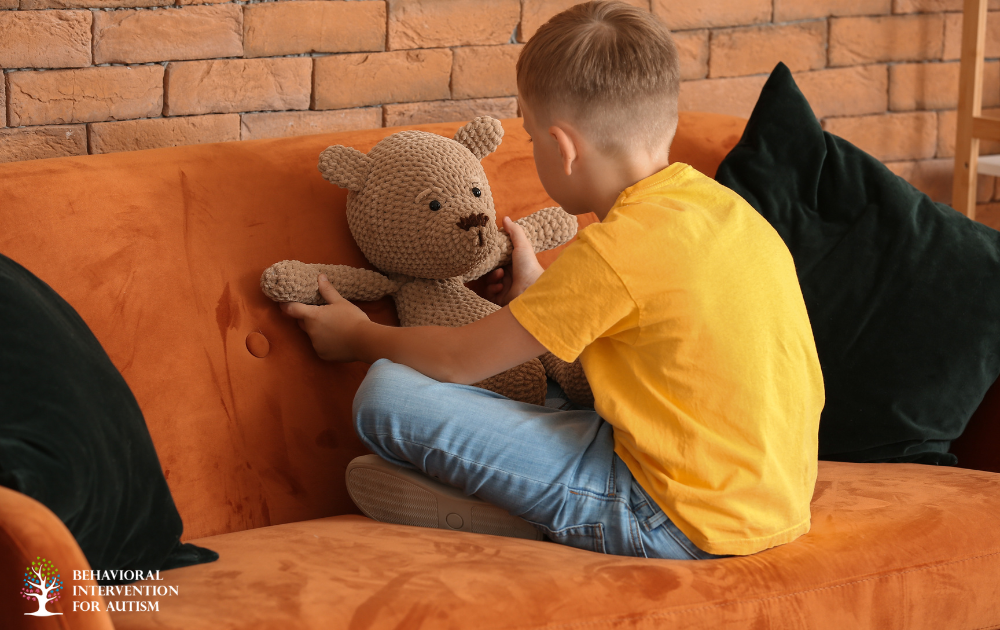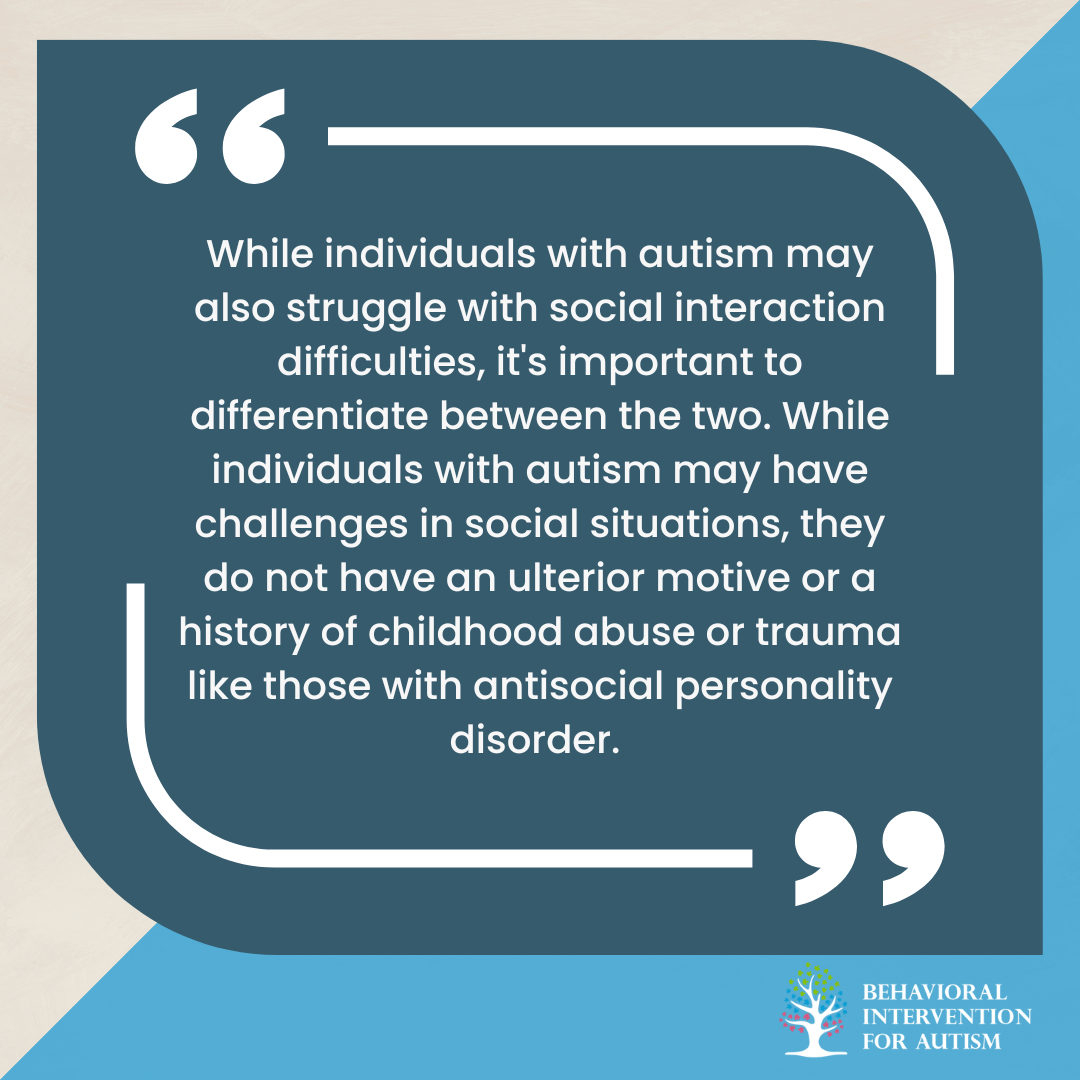
Table of Contents
While autism spectrum disorder (ASD) has distinct characteristics and comes in various types, other conditions may share certain similarities with it. Understanding these conditions can help differentiate between them and ensure appropriate diagnosis and treatment.
Let’s look at what these conditions are in this article.
Disorders Resembling Autism
For starters, autism is a complex neurodevelopmental disorder. Here, we’ll explore three disorders that resemble autism in terms of their symptoms.
Obsessive-Compulsive Disorder (OCD)
Obsessive-compulsive disorder (OCD) shares some symptoms resembling autism, such as repetitive behaviors or rituals. However, there are key differences between the two.
Individuals with OCD typically experience discomfort and distress from their compulsions, while individuals with autism may find comfort in repetitive behaviors. OCD is characterized by intrusive thoughts (obsessions) and the need to perform certain rituals (compulsions) to alleviate anxiety.
In contrast, autism primarily involves difficulties in communication, social interaction, and repetitive behaviors.
Antisocial Personality Disorder
Antisocial personality disorder is a condition characterized by a disregard or violation of the rights of others.
Antisocial personality disorder is characterized by a lack of empathy, manipulation, and a pattern of disregarding societal norms.
Learning Disorders
Learning disorders can sometimes be confused with autism, as both conditions may involve struggles with learning. However, it’s important to understand the distinctions between the two.
Autism primarily centers around difficulties in social understanding, communication, and repetitive behaviors. Learning disorders, on the other hand, primarily affect a person’s ability to acquire and use specific academic skills, such as reading, writing, or math.
It is worth noting that individuals with autism may exhibit intense focus and comprehension on topics that interest them, which can be different from the challenges typically seen in learning disorders.
Genetic Disorders with Autism-Like Symptoms
In addition to disorders that share a similarity to autism, several genetic disorders exhibit symptoms similar to those seen in autistic individuals.
Recognizing and differentiating these disorders will help ensure proper diagnosis and appropriate treatment. Let’s look at what these disorders are.
Williams Syndrome
Williams Syndrome is a rare genetic disorder caused by the deletion of a portion of DNA material on chromosome 7.
Many Williams Syndrome sufferers display traits associated with autism, including delayed language and development, difficulties with gross motor skills, sensitivity to noises, finicky eating, and persistence.
However, Williams Syndrome includes other symptoms that may require different or additional treatments. A diagnosis is essential to maximize the quality of care.
Fragile X Syndrome
Fragile X Syndrome is a genetic disorder that impacts males more significantly than females. The FMR1 gene alterations or mutations are the cause of it.
Developmental issues, learning disabilities, cognitive disorders, anxiety, delayed language and speech development, and indications that overlap with autism are possible in people with fragile X syndrome.
People with Fragile X Syndrome, however, can flourish and realize their full potential with the support of specialized therapies and swift intervention.
Landau-Kleffner Syndrome
One uncommon neurological syndrome is Landau-Kleffner Syndrome. It is distinguished by the onset of seizures and aphasia, which is the incapacity to comprehend or articulate language.
Males are more likely to experience it, and symptoms include hyperactivity and behavioral issues. When Landau-Kleffner Syndrome is misdiagnosed, it can be mistaken for autism. The best course of treatment for distinguishing between the two conditions requires a thorough evaluation by a neurologist or epileptologist.
Rare Disorders with Autism-Like Features
Although autism spectrum disorder (ASD) is a distinct condition, other rare disorders share certain similarities in terms of behavioral characteristics. Understanding these rare disorders can provide insights into the nature of autism and help differentiate it from other conditions.
These rare disorders are the following:
Rett Syndrome
Rett Syndrome is an uncommon neurological condition that mainly affects women. A variety of symptoms, including behaviors resembling those of autism, are its defining features. Rett syndrome in children is characterized by prolonged toe walking, body rocking, repetitive hand movements, and difficulty sleeping. These tendencies may be similar to those observed in autistic people.
According to estimates, 1 in 10,000 to 15,000 persons have Rett syndrome. It results from an overabundance of methyl cytosine binding protein due to a mutation in the MECP2 gene.The symptoms that have been noted are the consequence of this mutation, which impairs normal brain growth and function.
Prader-Willi Syndrome
Prader-Willi Syndrome (PWS) is a genetic disorder that affects multiple body systems. It shares overlapping symptoms with autism and an accurate diagnosis of each condition is necessary.
Individuals with Prader-Willi Syndrome often experience low muscle tone, feeding and growth challenges, developmental delays, intellectual disability, and cognitive impairment.
In addition to these features, individuals with PWS may exhibit behavioral characteristics similar to those seen in autism, including temper tantrums, repetitive behaviors, and obsessive-compulsive tendencies. It is important to note that not all individuals with Prader-Willi Syndrome will display these autism-like features, but when present, they can complicate the diagnostic process.
Angelman Syndrome
Angelman Syndrome is a genetic condition caused by the deletion or mutation of the UBE3A gene. This syndrome is associated with severe physical and learning disabilities.
Individuals with Angelman Syndrome often have very little or no speech and exhibit distinct behavioral patterns, such as hyperactivity, hand-flapping, and a happy demeanor.
While the primary features of Angelman Syndrome differ from those of autism, certain behavioral aspects can resemble autism-like characteristics. These may include coordination difficulties, seizures, sleep disorders, and feeding difficulties. Accurate diagnosis is crucial to differentiate between Angelman Syndrome and autism, as they require different approaches to intervention and management.
By understanding these disorders that share similarities with autism, we can gain a deeper appreciation for the complexity and diversity within the realm of developmental disorders.
Each of these conditions has unique characteristics and requires specialized attention and support. Conducting accurate diagnosis and tailored interventions are key to providing the best possible care for individuals affected by these rare disorders.
Sources:
https://www.webmd.com/brain/autism/autism-similar-conditions
https://autism.org/related-disorders
https://centerfordiscovery.com/blog/autism-awareness-month-five-conditions-mimic-autism
https://www.autismparentingmagazine.com/autism-similar-disorders
- 9 Common Obsessions of Children With Autism You Should Know - February 25, 2025
- What is Neurodiversity? A Guide to Embracing Differences - February 25, 2025
- Understanding Hyperfocus in Autism: What It Means and Why It Happens - February 25, 2025




